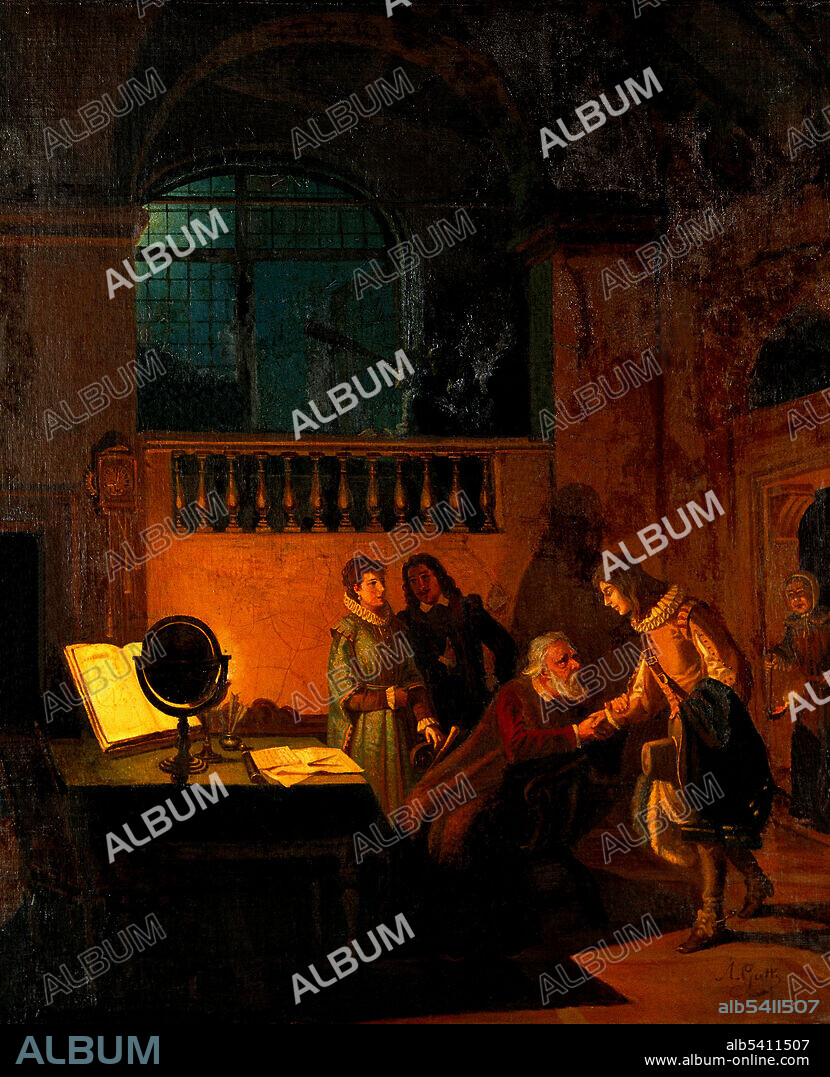alb5411507
Galileo Receiving John Milton,1638

|
Add to another lightbox |
|
Add to another lightbox |



Buy this image.
Select the use:

Title:
Galileo Receiving John Milton,1638
Caption:
Galileo Galilei receiving John Milton. This meeting, between the English poet John Milton and Galileo Galilei (1564-1642), supposedly took place in 1638. Galileo was convicted as a heretic by the Roman Catholic Inquisition for his support of the Copernican theory in his book Dialogue Concerning the Two Chief World Systems (1632). He was placed under house arrest until the end of his life. Milton is known to have explored Italy and he later mentioned the imprisoned Galileo in his epic poem Paradise Lost. John Milton (December 9, 1608 - November 8, 1674) was an English poet, polemicist, and a civil servant for the Commonwealth of England under Oliver Cromwell. Writing in English, Latin, Greek, and Italian, he achieved international renown within his lifetime, and his celebrated Areopagitica (1644) - written in condemnation of pre-publication censorship - is among history's most influential and impassioned defenses of free speech and freedom of the press. Milton wrote at a time of religious flux and political upheaval, and is best known for his epic poem Paradise Lost (1667). His use of blank verse, in addition to his stylistic innovations (such as grandiloquence of voice and vision, peculiar diction and phraseology) influenced later poets. His poetry and prose reflect deep personal convictions, a passion for freedom and self-determination, and the urgent issues and political turbulence of his day. He cast a formidable shadow over English poetry in the 18th and 19th centuries. He died of kidney failure in 1674 at the age of 65. Oil painting by Annibale Gatti, undated.
Credit:
Album / Science Source / Wellcome Images
Releases:
Model: No - Property: No
Rights questions?
Rights questions?
Image size:
3403 x 4200 px | 40.9 MB
Print size:
28.8 x 35.6 cm | 11.3 x 14.0 in (300 dpi)
Keywords:
17TH CENTURY • ASTRONOMER • ASTRONOMY • CELEBRITIES • CELEBRITY • ENGLISH • FAMOUS PEOPLE • FAMOUS • GALILEO GALILEI • GALILEO • HISTORY • ITALIA • ITALY • JOHN MILTON • MAN • MEETING • MEN • PERSONALITY • POET • POLEMICIST • RECEIVING • WESTERN LITERATURE
 Pinterest
Pinterest Twitter
Twitter Facebook
Facebook Copy link
Copy link Email
Email
